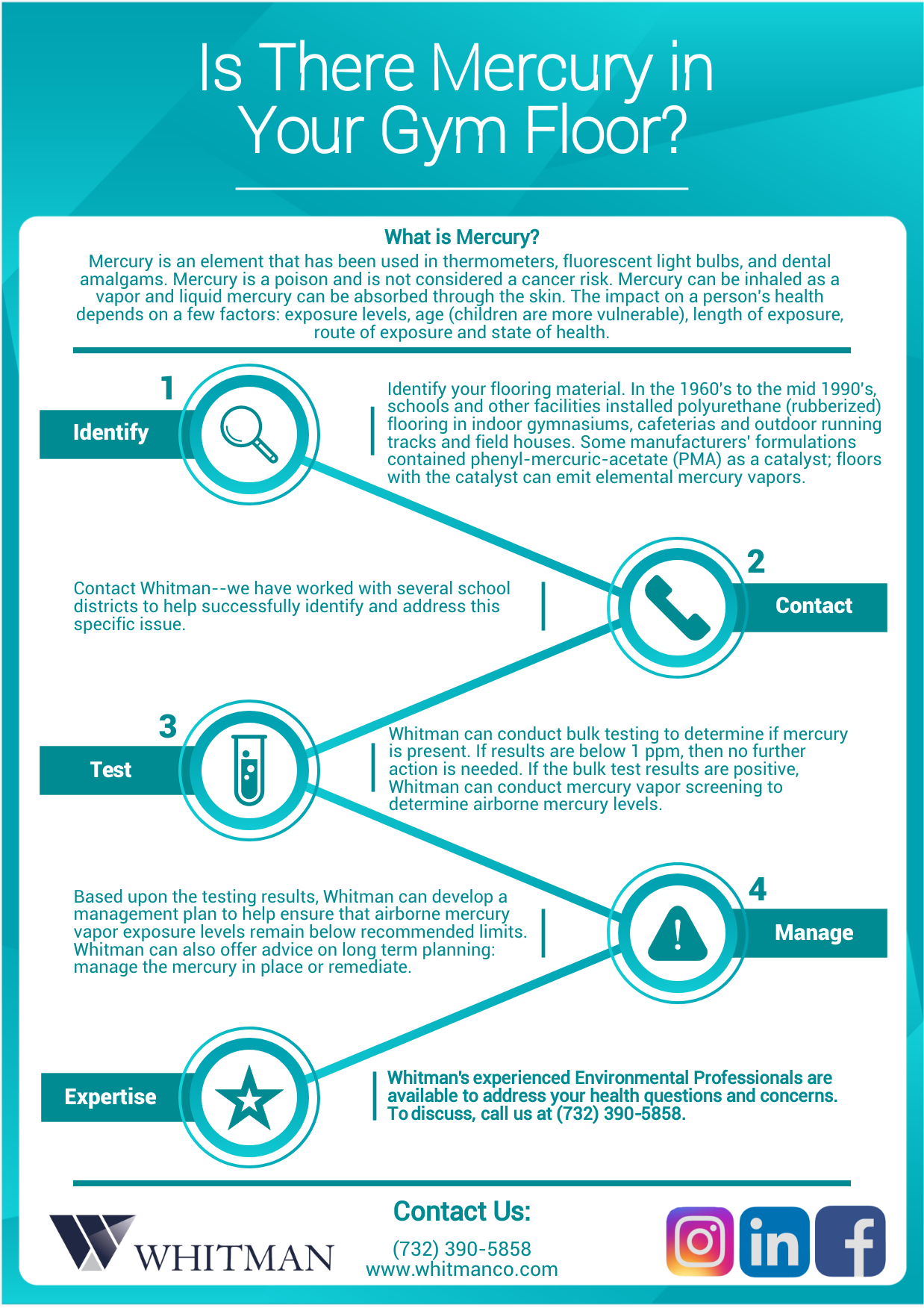
What is Mercury?
Mercury is a toxic chemical element that was once known for being used in thermometers, fluorescent light bulbs and dental amalgams. The United States Clean Air Act, passed in 1990, put mercury on a list of toxic pollutants that need to be controlled to the greatest possible extent. Mercury is a poison and is not considered a cancer risk. Mercury can be inhaled as a vapor and liquid mercury can be absorbed through the skin. Mercury can cause both chronic and acute poisoning.
How Did the Mercury Get in Gym Floors?
From the 1960’s to the mid 1990’s, schools and other facilities installed polyurethane (rubberized) flooring in indoor gymnasiums, cafeterias and outdoor running tracks and field houses. Some manufacturers’ formulations contained phenyl-mercuric-acetate (PMA) as a catalyst; floors with the catalyst can emit elemental mercury vapors.
Are Mercury Vapors a Health Concern?
They can be–the impact on a person’s health depends on a number of factors, including:
- Mercury exposure levels
- Length of exposure
- Age (young children are more vulnerable)
- Route of exposure
- Current state of health
We Have a Polyurethane Floor…What Do We Do Next?
- Contact Whitman–we have worked with several school districts to help identify and address this specific issue.
- Whitman can conduct bulk testing to determine if mercury is present. If results are below 1 ppm, then no further action is needed. If the results are positive, Whitman can conduct mercury vapor screening to determine airborne mercury levels.
- Based upon the testing results, Whitman can develop a management plan to help ensure that airborne mercury vapor exposure levels remain below recommended limits. Whitman can also offer advice on long term planning: manage the mercury in place or remediate.

We Can Help
Whitman’s staff includes a number of health and safety professionals whose goal is to help keep workers, families and their communities healthy and safe. These professionals can assist in identifying sources of contamination and develop plans for mitigation.
Please contact our Senior Vice President, John Beaupre, with any health and safety questions or concerns you may have.
Contact
John Beaupre
Senior Vice President
![]() jbeaupre@whitmanco.com
jbeaupre@whitmanco.com
![]() (732) 390-5858
(732) 390-5858
![]() (484) 542-5697
(484) 542-5697
Posted on July 17, 2018






